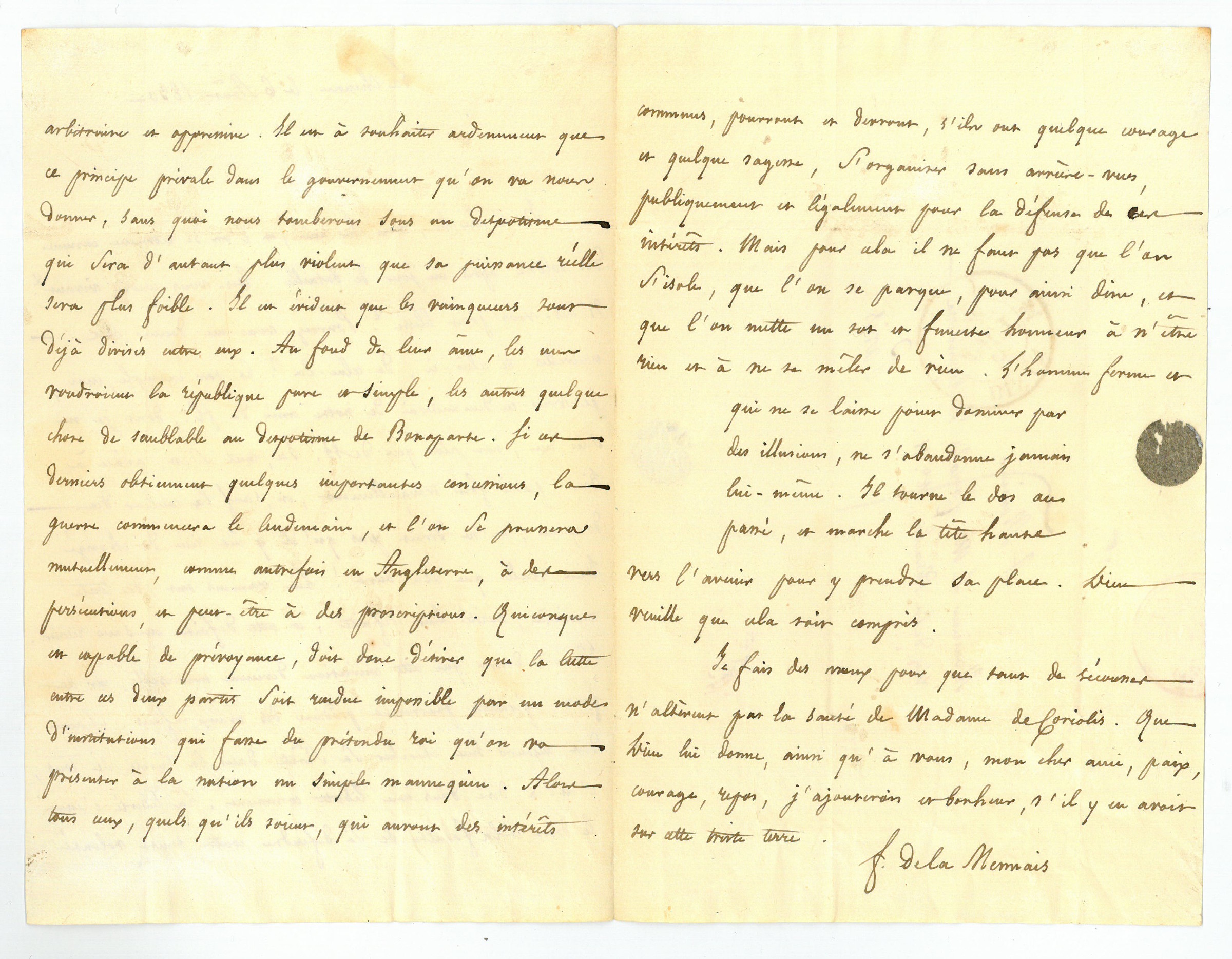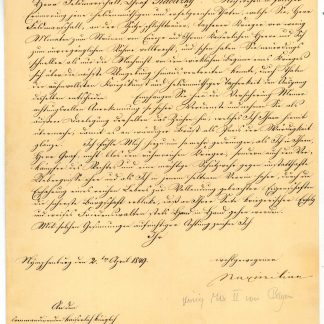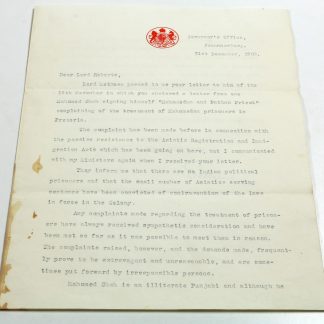"We look for each other, my dear friend, and we find each other like soldiers after a day of battle": What will come after the July Revolution?
Autograph letter signed.
8vo. 3 pp. on bifolium. With autograph address panel. In French.
€ 3.500,00
Long and important political letter to his close friend Charles Louis Alexandre Coriolis d'Espinouse from the immediate aftermath of the July Revolution that had led to the abdication of Charles X on 2 August 1830. Lamennais anxiously awaits news about the well-being of Coriolis and other friends in Paris, reporting that in Plesder everything "went very smoothly" and that "apart from the colour of the flag, it does not look as if anything has changed". Nevertheless, the revolution was necessary and just to him, affirming that the Bourbons "deserved their defeat" and that "this defeat is without return", as freedom "is the right and the ability to defend oneself against any arbitrary or oppressive will". Lamennais expresses his hope that this principle "will prevail in the government we are about to be given", fearing that despotism will return otherwise: "Clearly, the victors are already divided among themselves. In the depths of their souls, some would like a pure and simple republic, others something similar to Bonaparte's despotism. If the latter obtain a few important concessions, war will begin the next day, and they will push each other, as they did in England, to persecution and perhaps proscription". Therefore, he calls for a strong constitutional monarchy that would reduce the "so-called king" to "a mere dummy". In Lamennais' view, the greatest danger to the constitutional monarchy to be instituted is politcal lethargy: "Then all those, whoever they may be, who have common interests, can and should, if they have any courage and wisdom, organize themselves without ulterior motives, publicly and legally to defend these interests. But to do so, they must not isolate themselves, park themselves, so to speak, and make a foolish and disastrous honor of being nothing and meddling in nothing". He closes with a religious invocation of political strength and wisdom: "The firm man who does not let himself be dominated by illusions never abandons himself. He turns his back on the past, and walks headlong into the future to take his place. God grant that this may be understood".
Lamennais probably feared for his friend Charles Louis Alexandre Coriolis d'Espinouse (1770-1841) as a current or former partisan of Charles X. After all, the marquess was the author of a eulogy for Charles's oldest son Charles-Ferdinand d'Artois, who had been assassinated by a Bonapartist in 1820, and of a panegyric for the 1824 coronation of the Charles X that was published in 1825.
Well preserved.







